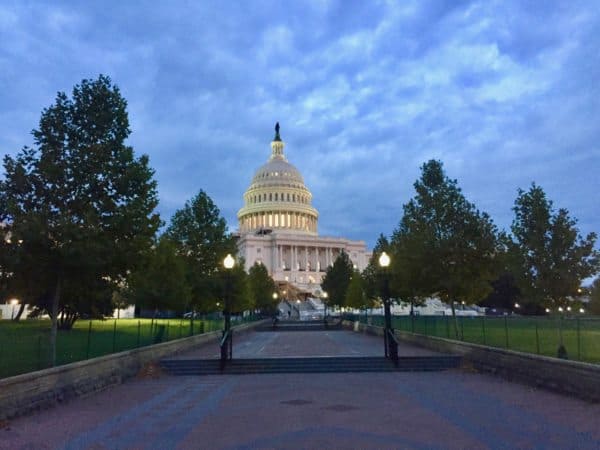The [William M. (Mac) Thornberry] National Defense Authorization Act for Fiscal Year 2021 (HR 6395) was signed into law at the beginning of this month. While the title of the law is pretty accurate as the bulk of the legislation addresses defense issues, buried within the language is law that impacts the digital assets or virtual assets sector. The legislation, which is 1480 pages long, has a section entitled “Division F – Anti Money Laundering.” This section is designed to improve coordination and information sharing among the agencies tasked with administering anti-money laundering (AML) and countering the financing of terrorism (CFT) requirements, modernizing AML/CFT laws while encouraging innovation to counter illicit activities. The law also establishes “uniform beneficial ownership” reporting requirements.
The legislation, which passed with bipartisan support, is embedded below.
The law requires several studies including a report on stopping trafficking, illicit flows, laundering, etc, that includes the role that “emerging technologies, including artificial intelligence, digital identity technologies, distributed ledger technologies, virtual assets, and related exchanges and online marketplaces, and other innovative technologies, can play in assisting with and potentially enabling the laundering of proceeds from trafficking.”
Additionally, it seeks to better understand how payment systems, including virtual currencies, are utilized for nefarious activities.
The Director of National Intelligence, along with the Secretary of the Treasury and the heads of other Federal agencies, must enter into a contract with a “federally funded research and development center under which the center will conduct a study on identifying and addressing threats that individually or collectively affect national security, financial security, or both.”
The Director of FinCEN is expected to brief the Committee on Banking, Housing, and Urban Affairs of the Senate and the Committee on Financial Services of the House of Representatives on the use of emerging technologies, including; AI, distributed ledger technology as well as whether this technology can improve enforcement efforts.
To quote the document:
The Comptroller General of the United States shall conduct a study on how a range of payment systems and methods, including virtual currencies in online market- places, are used to facilitate human trafficking and drug trafficking, which shall consider—
(A) how online marketplaces, including the dark web, may be used as platforms to buy, sell, or facilitate the financing of goods or services associated with human trafficking or drug trafficking, specifically, opioids and synthetic opioids, including fentanyl, fentanyl analogues, and any precursor chemical associated with manufacturing fentanyl or fentanyl analogues, destined for, originating from, or within the United States;
(B) how financial payment methods, including virtual currencies and peer-to-peer mobile payment services, may be utilized by online marketplaces to facilitate the buying, selling, or financing of goods and services associated with human trafficking or drug trafficking destined for, originating from, or within the United States;
(C) how virtual currencies may be used to facilitate the buying, selling, or financing of goods and services associated with human trafficking or drug trafficking, destined for, originating from, or within the United States, when an online platform is not otherwise involved;
(D) how illicit funds that have been transmitted online and through virtual currencies are repatriated into the normal banking system of the United States through money laundering or other means;
(E) the participants, including State and non-State actors, throughout the entire supply chain that may participate in or benefit from the buying, selling, or financing of goods and services associated with human trafficking or drug trafficking, including through online marketplaces or using virtual currencies, destined for, originating from, or within the United States;
(F) Federal and State agency efforts to impede the buying, selling, or financing of goods and services associated with human trafficking or drug trafficking destined for, originating from, or within the United States, including efforts to prevent the proceeds from human trafficking or drug trafficking from entering the United States banking system;
(G) how virtual currencies and their underlying technologies can be used to detect and deter these illicit activities; and
(H) to what extent immutability and traceability of virtual currencies can contribute to the tracking and prosecution of illicit funding.
FinCEN is required to establish a “secure, nonpublic database” for beneficial ownership information.


